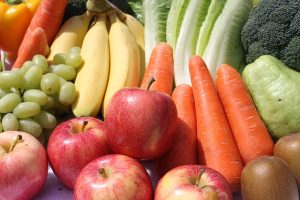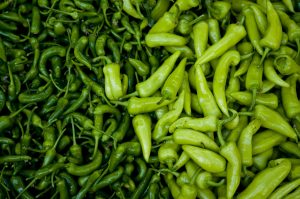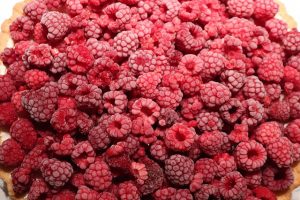 Eating a diet high in fruits and vegetables helps increase one’s immune health as well as reduces the risk of developing a variety of chronic diseases. Both frozen and fresh produce are good sources of many nutrients. The nutritional benefits of produce will be different depending on its type.
Eating a diet high in fruits and vegetables helps increase one’s immune health as well as reduces the risk of developing a variety of chronic diseases. Both frozen and fresh produce are good sources of many nutrients. The nutritional benefits of produce will be different depending on its type.
Fresh produce
Produce is often harvested at its’ peak time of both freshness and nutritional quality. It may lose nutrients in the time it takes to  get from the farm to the grocery store and then to your table. This is especially true for fresh produce that is not in season in Colorado and that may travel far distances. In-season produce found at a farmers’ market or local grocery store will be fresh and did not have to travel a far distance to get there; maintaining its nutritional quality.
get from the farm to the grocery store and then to your table. This is especially true for fresh produce that is not in season in Colorado and that may travel far distances. In-season produce found at a farmers’ market or local grocery store will be fresh and did not have to travel a far distance to get there; maintaining its nutritional quality.
- Fresh produce often offers more variety, since not every fruit or vegetable is able to be frozen.
Frozen produce
Harvested at peak time for both freshness and nutrition, produce destined for freezing is then transported to a processing  plant nearby. During processing the produce is cooked partially (blanching) and then frozen. This process kills bacteria and often preserves most of the nutritional quality.
plant nearby. During processing the produce is cooked partially (blanching) and then frozen. This process kills bacteria and often preserves most of the nutritional quality.
- Frozen produce offers convenience, a longer shelf life, and sometimes cheaper prices than fresh produce.
The Winner is…YOU!!
It is important to consume a variety of fruits and vegetables every day and take advantage of the form of produce you like best or have easiest access to. Sometimes canned produce is a good option, too. Compare the price and availability of fresh, frozen and canned fruits and vegetables to determine which is the better buy at the time.
-
- Learn more about freezing foods at home
- Use Preserve Smart App or website for easy instructions for freezing fruits and vegetables foods at home..reduce food waste!!

